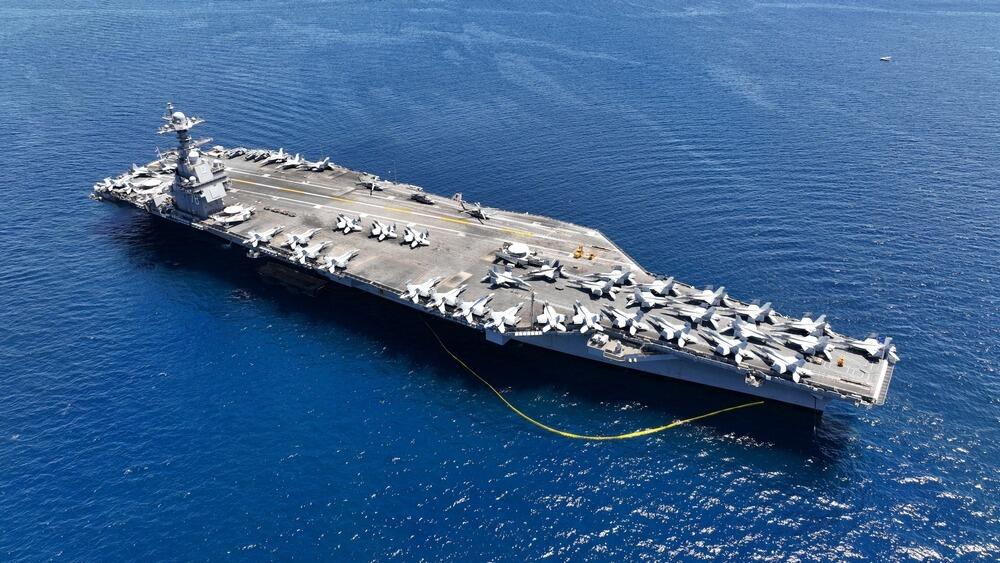War is the ultimate game theory application: Very easy to see the outcome after, almost impossible before.
The coming war should not happen. It is a war of choice entirely due to economic factors. Still, at this stage, it is very hard to see what will prevent it. Not to prepare for it would be foolish. Most world leaders are fools, but not for war, they either are or will soon prepare making the outcome all the more certain.
The Greeks were right: If they are any deity up there, they must be amused by our struggles and tribulations. It cannot be otherwise!
Authored by Nick Giambruno via InternationalMan.com,
At a cost of $250 million, Millennium Challenge 2002 was the largest and most expensive war game in Pentagon history.
With over 13,500 participants, the US government took over two years to design it.
The exercise pitted Iran against the US military. Washington intended to show how the US military could defeat Iran with ease.
Paul Van Riper, a three-star general and 41-year veteran of the Marine Corps, led Iranian forces in the war game. His mission was to take on the full force of the US military, led by an aircraft carrier battle group and a large amphibious landing force in the Persian Gulf.
The results shocked everyone…
Van Riper waited for the US Navy to pass through the shallow and narrow Strait of Hormuz, which made them sitting ducks for Iran’s unconventional and asymmetric warfare techniques.
The idea is to level the playing field against a superior enemy with swarms of explosive-laden suicide speedboats, low-flying planes carrying anti-ship missiles, naval mines, and land-based anti-ship ballistic missiles, among other low-cost but highly effective measures.
In minutes, Van Riper emerged victorious over his superior opponent and sank all 19 ships. Had it been real life, 20,000 US sailors and marines would have died.
Millennium Challenge 2002 was a complete disaster for the Pentagon, which had spent a quarter of a billion dollars to set up the extensive war game. It produced the exact opposite outcome they wanted.
So what did the Pentagon do with these humbling results?
Like a child playing a video game, they hit the reset button. They then rigged and scripted the game so that the US was guaranteed to win.
After realizing the integrity of the war game had been compromised, a disgusted Van Riper walked out mid-game. He then said:
“Nothing was learned from this. And a culture not willing to think hard and test itself does not augur well for the future.”
The main lesson of Millennium Challenge 2002 is that aircraft carriers—the biggest and most expensive ships ever built—wouldn’t last a single day in combat against even a regional power like Iran. Russia and China would have an even easier time dispatching them. They are overpriced toys.
That means the US has wasted untold trillions on military hardware that could prove to be worthless in a serious conflict.
Nonetheless, the US government still parades aircraft carriers around the world from time to time to try to intimidate its enemies.
However, it’s a flawed strategy prone to catastrophic results if someone calls their bluff.
While Millennium Challenge 2002 occurred more than 20 years ago, it is of paramount importance today.
Iran has substantially improved its asymmetric and unconventional warfare capabilities. It’s doubtful the US military would fare much better today than 20 years ago.
In short, war with Iran today could be even more disastrous than the Millennium Challenge 2002 simulation.
Unfortunately, war with Iran is an increasingly probable outcome as tensions in the Middle East are at their highest point in generations and are trending higher.
Previously, I lived in Beirut, Lebanon, for several years while working for an investment bank. The experience was effectively an advanced training course in Middle East geopolitics. Today, it helps me see the big picture in the region… and unfortunately, it isn’t pretty.
I think the next big war in the Middle East is coming soon and could be the biggest one ever. It will focus on Iran.
The market doesn’t appreciate how close we are to a big war and the implications of it.
But this distortion in the market is a blessing. It’s handing us a golden opportunity.
First and foremost, I think there’s a huge opportunity to profit in the oil market right now.
I’m certainly not cheering for war. I despise war, which is the health of the State.
Regardless, a big war is highly likely, with significant investment implications that would be foolish to ignore.
In short, we are only one escalation away from potentially the biggest oil shock in history as the Middle East is on the verge of the largest regional war in generations.



No comments:
Post a Comment